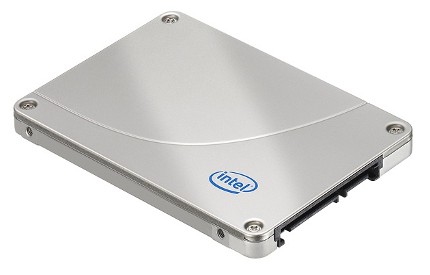The rumour mill has been pretty quiet on Intel's third-gen SSDs since we caught wind of some supposed specs in October last year. Although the drives are still due out this quarter, the latest buzz suggests that they might actually be something to get excited about.
According to Fudzilla's network of unnamed sources, the next-gen SSDs will be a part of the Emcrest-family and built using Intel's brand new 34nm NAND. Although this is a step backwards from the 25nm memory that was rumoured previously, it does seem a little bit more realistic.
But it's the performance numbers that are really interesting. The source suggests that read speeds could be on the order of 450MB/s, while writes would be able to hit 300MB/s. For comparison, Intel's current generation drives - even the high performance X25-E series - only managed to hit 250MB/s and 170MB/s. Random read performance is suspected to be around 20,000 4k IOPS.

While the random read performance is quite a bit slower than current-gen SandForce-based drives, the sequential speeds are significantly better. They even get close to the next-gen SF-2000 controller's 550MB/s read and 525MB/s write performance, although that isn't expected to arrive in consumer devices until later this year.
Obviously these sorts of numbers would require SATA 6GBps, which Intel has supported with this new controller.
The only real red flag for us is that the source says that they will launch under the '510' branding. Currently, the company's mini-PCIe SSDs are branded as 310, so it's possible that these either aren't traditional 2.5in drives, or we're seeing a new marketing strategy.
Apparently the drives will launch in 250GB and 120GB models priced at $579 and $279 (£450 and £215 inc VAT) respectively. Although this is pretty pricey, it's roughly in-line with current high-end consumer drives at these capacities.
These numbers might sound a bit fanciful at the moment, but we should only have to wait a few more weeks to find out if there's any truth to them at all.













